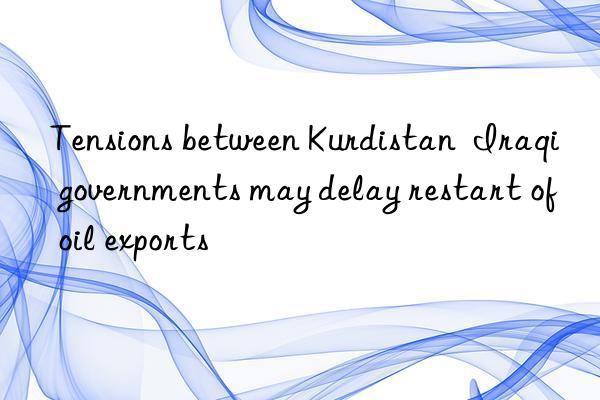
Foreign news on May 29, the conflict between the Kurdistan regional government and Baghdad exacerbated the risk of oil supply recovery in northern Iraq.
Rudaw reported that the Iraqi government made Kurdistan-related revisions to the federal budget last week, raising tensions. The Kurdish government has slammed the changes as unconstitutional.
The dispute will delay approval of the budget and threaten to upset the delicate balance Baghdad and Erbil have struck after Kurdish hikes to curb oil exports shut thousands of barrels of production.
"A hasty agreement of understanding and an attempt to violate the constitutional rights of the Kurdistan region is a complete breach of state responsibility, will produce nothing but disappointment, and complicate the country's political stability. It will hurt All of Iraq," Kurdistan President Nechirvan Barzani said in a statement.
The semi-autonomous region's prime minister, Masoud Barzani, veiled that the budget proposal violated an agreement between Erbil and Baghdad to cover oil exports from the region.
The export of Kurdistan crude oil with a daily export volume of about 400,000 barrels was suspended by the Iraqi federal government on March 25. Crude oil from the region is transported to Ceyhan via the Iraq-Turkey pipeline before being transported by tanker to international markets.
Oil exports from the north of the country and Kurdistan via Ceyhan have been disrupted due to limited storage tank capacity, forcing oil companies to cut or suspend production.
Days before the export halt in March, the International Chamber of Commerce (ICC) ruled in favor of Iraq over Turkey in a ruling over Kurdistan's crude oil export dispute.
Iraq said Turkey should not allow Kurdish oil exports through the Iraq-Turkey pipeline and Ceyhan without the approval of the Iraqi federal government. In response, Turkey closed the pipeline to Ceyhan, cutting off the flow of Kurdistan oil from the market.



 微信扫一扫打赏
微信扫一扫打赏
